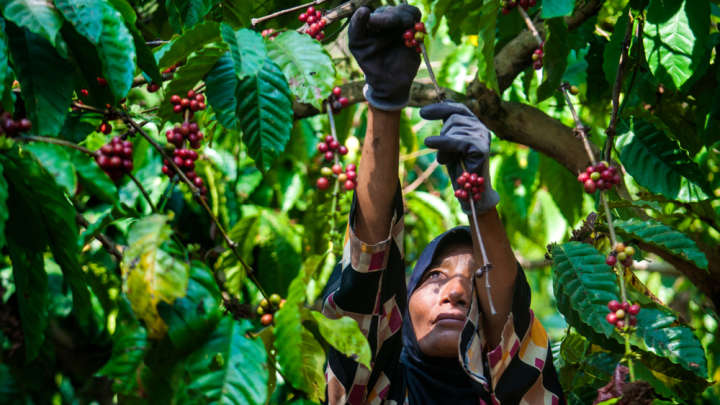Your Coffee And Chocolate Habit Could Be Fueling Malaria
Many of the world’s favorite food and drinks – such as coffee, chocolate, and soy – could be fanning the flames of malaria, according to a new study.
Products such as coffee, cocoa, tobacco, tea, beef, soybeans, and palm oil require huge amounts of land to satisfy intense demand from developed countries and help to fuel forest clearing in many tropical regions of the world. The environmental cost of deforestation is fairly widely understood, but what does it have to do with malaria?
Previous research has shown that deforestation can help create the ideal conditions for Anopheles mosquitoes to thrive, the females of which can pick up and spread the parasite responsible for malaria. Deforestation can help foster warmer environments with fewer predators, the perfect setting for mosquitos. Paired with this, the chopping down of trees reduces the absorption of water and exposes more land to sunlight, creating an increasing number of warm pools of standing water that mosquitoes use for breeding grounds.
Reported in the journal Nature Communications, researchers from the University of Sydney have assessed how much the deforestation-driven malaria risk can be attributed to demand for widely traded commodities. They estimate up to 20 percent of the malaria risk to humans in deforestation hotspots is driven by the international trade of land-hungry exports, such as timber, wood products, tobacco, tea, cocoa, coffee, and cotton.
“This study is the first to assess the role of global consumption in increasing deforestation and, in turn, malaria risk,” co-author Dr Arunima Malik, from the Centre for Integrated Sustainability Analysis in the School of Physics, said in a statement.
“Unsustainable human consumption is clearly driving this trend,” they added.
“This work goes beyond simple incidence mapping and correlations, in that it unveils a global supply-chain network that links malaria occurring in specific locations because of deforestation with globally dispersed consumption,” Dr Malik said.
Does this mean coffee and chocolate should be taken off the menu completely? Not necessarily, the researchers say. However, they argue that consumers in more economically developed countries should be “more mindful of our consumption” and pay close attention to where our food comes from. As a simple tip, many brands of coffee or chocolate are certified by organizations such as the Rainforest Alliance, which shows they are environmentally, socially, and economically sustainable.
Further ahead, it suggests that policymakers and researchers should be taking into account how global supply chains can affect the world’s efforts to mitigate malaria. As is often the case, the reality of the problem is much more complicated than it first appears.
“What does this mean for affluent consumers?” asked senior author Professor Manfred Lenzen. “We need to be more mindful of our consumption and procurement, and avoid buying from sources implicated with deforestation, and support sustainable land ownership in developing countries.”
Read more: https://www.iflscience.com/environment/your-coffee-and-chocolate-habit-could-be-fueling-malaria/



